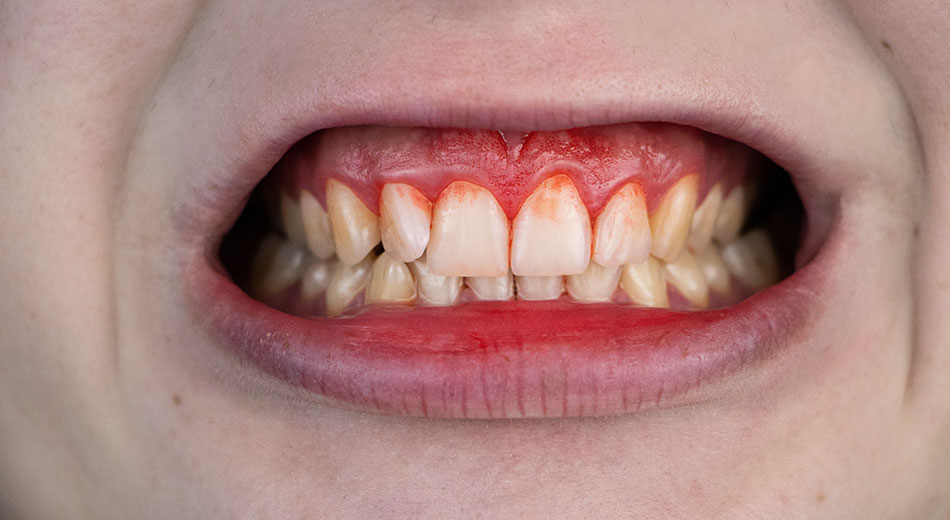Even though gum disease can affect people who brush and floss regularly, nearly half of Americans aged 30 and older have some form of periodontal disease.
Gum disease can usually be treated successfully at its earliest stages, but it cannot be reversed once it has progressed to periodontal disease. Don’t wait until you’ve got gingivitis or worse before taking action! Please schedule an appointment with us today so we can help protect your smile.
What Are the Symptoms of Gum Disease?
Gum disease can cause some of the following symptoms:
- Sore gums
- Bleeding gums
- Receding gums
- Pain when chewing
- Sensitive teeth
- Tooth loss
However, many symptoms described above can also indicate other oral health issues. It’s essential to contact our office if you think you may have gum disease.
There are several causes of gum disease.
Untreated gum disease is caused by plaque buildup on the surface of your teeth and gums.
If you don’t brush your teeth regularly, you’re at greater risk for gums disease because the bacteria in plaque consume the sugar and starch left behind in your mouth after eating.
If you want to protect your dental health, you need to visit your dentist regularly. At your next preventive care appointment, they can check your gums and identify any early warning signs of gum disease. They can then recommend ways to prevent further damage to your mouth.
At Smile Glen Ellyn, we are always looking out for our patient’s best interests. One way we do that is by gathering their medical and dental histories before they arrive at our office.
Is Gum Disease Reversible?
Gingivitis, also known as early gum disease, can be treated by following good oral hygiene practices and visiting us for regular cleanings. During your visit, we will be able to remove plaque and tartar from your mouth and monitor your oral health at home. Brushing twice daily and flossing once daily will help prevent plaque buildup.
Advanced gum disease, or periodontal disease, can’t be reversed, but our dentists can mitigate its harmful effects by performing scaling and root planing procedures. Scaling and root planning can help prevent some more serious consequences of advanced gum disease, including receding gums and tooth loss.
What is Scaling and Root Planing?
Periodontal disease tends to cause deep gum pockets around teeth. When treating periodontal disease, our dental professionals can deep clean these pockets and smooth out the tooth roots. Scaling and root planing removes plaque from the surface of the teeth and encourages the gums to attach back to the teeth.
Prevent gum disease by brushing twice daily for two minutes each time. If you have any questions or would like to schedule an appointment in Glen Ellyn, IL., call us today.



